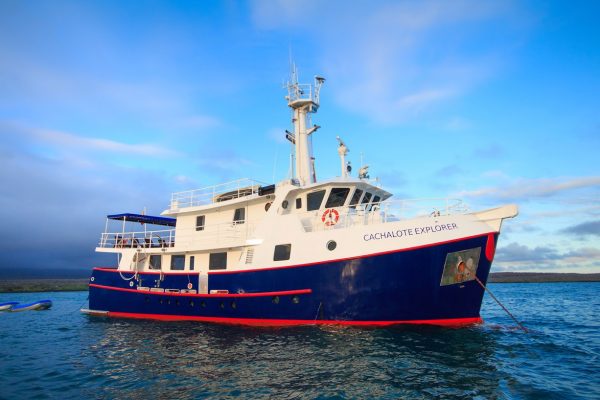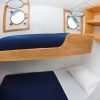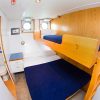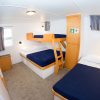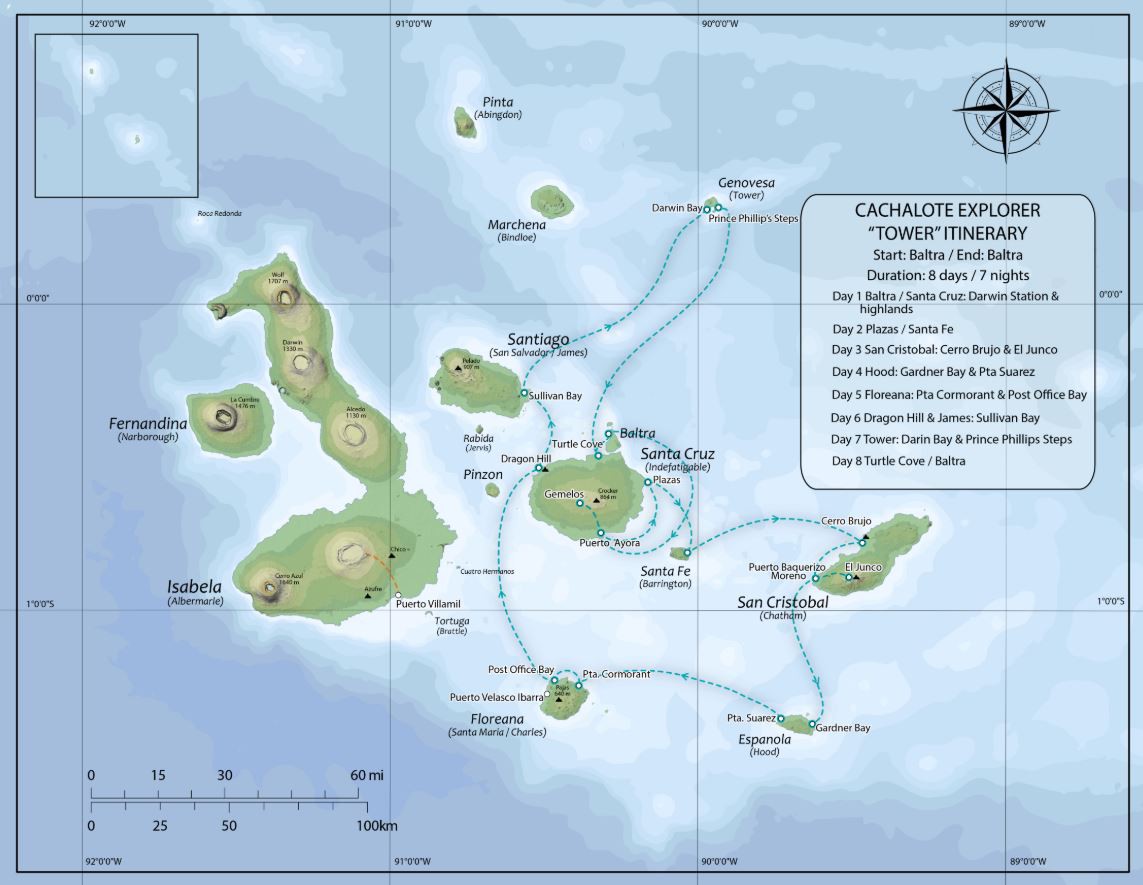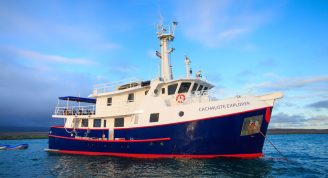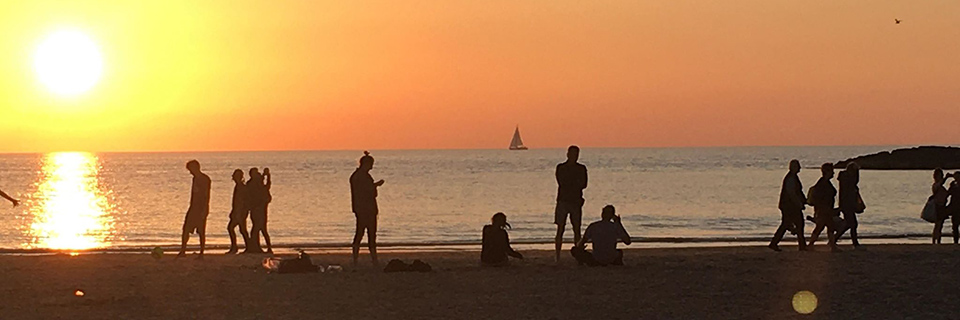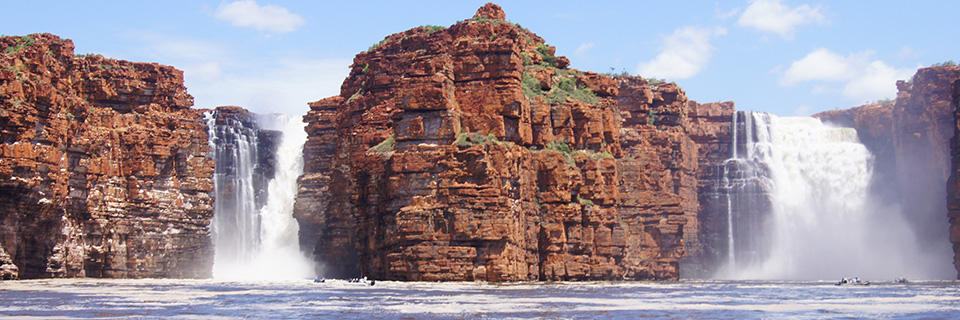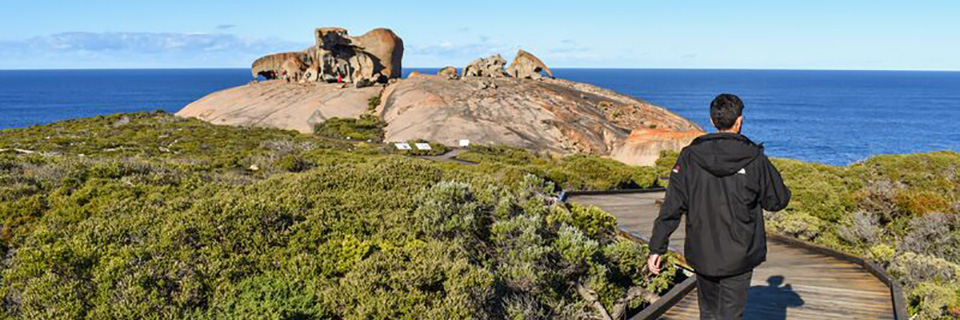Description
This itinerary focuses on the Central, Southern and Northern Islands, including visits to Tower and Hood Island, two of the highlights of the Galapagos Islands.
Trip Name
Cachalote Tower Galapagos Cruise
Days
8
Overview
Vessel type: Standard First-Class Motor Vessel
Length: 27 metres
Passenger Capacity: 16 passengers
Built / refurbished: 1988 / 2018
Originally a fishing boat, built in 1988 in Vancouver, Canada, this large and spacious motor vessel was converted into a passenger vessel in the early 2000’s. She has 8 cabins (16 pax.) each with their own private bathroom equipped with Hot and Cold water shower, air-conditioned throughout, and a large salon/dining area with multiple large deck areas for relaxing, eating and socializing.
This charming and comfortable First-Class yacht was built for the rough waters of the Canadian West Coast, so it will provide a stable, smooth and relaxing ride while visiting the beautiful Galapagos Islands.
Crew: All crew are fully trained and certified. Captain, multilingual naturalist guide, cook, engineers, barman, and 4 sailors.
Cruising speed: 8 knots (appx.)


